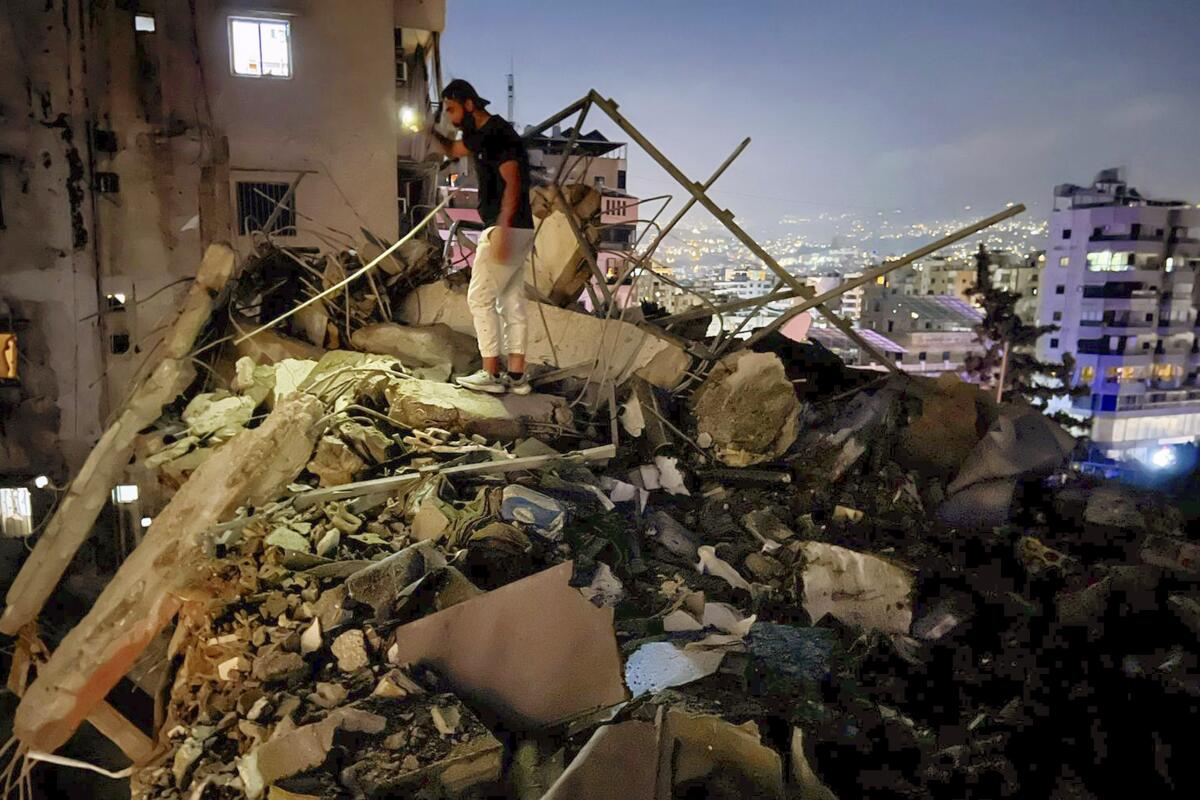
The strikes were part of Operation Northern Arrows, with Israeli jets targeting key Hezbollah military sites. These included the group's missile depots and command centers across southern Lebanon. Reports suggest that Israeli intelligence is zeroing in on Hezbollah leadership, including its chief, Hassan Nasrallah. Israel believes it may have neutralized high-profile Hezbollah commanders, including those responsible for aerial operations, during these strikes.
Israeli Defense Forces (IDF) stated that the attacks have substantially weakened Hezbollah’s ability to carry out large-scale missile launches, one of the group's key tactics in its longstanding conflict with Israel. Since Hezbollah began its solidarity campaign with Hamas following the October 2023 Hamas-Israel clashes, the IDF has faced frequent rocket fire, though Israel's Iron Dome system intercepted most incoming attacks.
These developments have occurred alongside speculation that Israel might launch a ground offensive in Lebanon. Israeli defense officials have indicated readiness for a swift operation, should Hezbollah escalate further. While the Israeli government faces significant pressure from both its domestic and international allies, particularly the U.S. and France, to consider ceasefire agreements, Prime Minister Benjamin Netanyahu has dismissed proposals aimed at de-escalation.
Amid this heightened military activity, Hezbollah has acknowledged the deaths of multiple high-ranking officials, though the group's leadership has remained largely silent on the extent of the damage. Hezbollah’s combat capabilities, built over decades with support from Iran, remain central to the region's security dynamics, as the group continues to operate as a major non-state military actor in Lebanon.
The current campaign reflects Israel’s broader strategy of preventing Hezbollah from establishing deeper footholds along its northern border. The IDF, in the past year, has carried out several smaller-scale operations, but the scope of the latest attacks marks a significant escalation, with thousands of Israeli soldiers mobilized along the border and the IDF employing more aggressive tactics.
Tensions along the Israel-Lebanon border have been mounting since Hezbollah's increased involvement in Gaza-related conflicts. Israeli defense officials emphasized that the strikes are part of a wider objective to secure northern Israeli communities, which have suffered multiple Hezbollah rocket attacks since 2023. This offensive comes in the context of broader regional volatility, with Israeli forces also involved in operations against Palestinian militants in Gaza.
Israeli military commanders have pointed out that Hezbollah's elite Radwan Force has been severely impacted, with several of its leaders killed. This force, responsible for Hezbollah’s ground operations, had been planning significant attacks on Israel. Nevertheless, military sources stress that the conflict is far from over, as Hezbollah maintains deep-rooted networks across Lebanon, making the prospect of a quick resolution unlikely.
Diplomatic channels remain strained, with key international actors pushing for negotiations. However, with Hezbollah continuing to fire rockets into northern Israel, any immediate ceasefire appears out of reach. As both sides brace for more clashes, the civilian toll has been steadily rising, adding to the humanitarian crisis already unfolding in Lebanon, which is still recovering from the economic devastation of its broader political instability.
The offensive has stirred concerns in neighboring countries, particularly given Hezbollah's ties to Iran and Syria. Israeli strikes have also targeted Hezbollah's supply routes, which run through these neighboring states, raising the specter of a broader regional conflict. For now, Israel seems committed to neutralizing Hezbollah’s military capacity, particularly its missile infrastructure, which poses an immediate threat to its northern regions.
Topics
Spotlight
